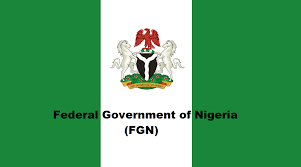The Federal Government and stakeholders in the environmental sector have reaffirmed their commitment to eliminating plastic pollution across Nigeria.
This renewed dedication aligns with global efforts to combat the escalating plastic crisis, which poses serious environmental, economic, and health risks.
Minister of Environment, Balarabe Abbas Lawal, made this known during the 2025 World Environment Day commemoration in Abuja, themed “Ending Plastic Pollution.”
Lawal assured that under President Bola Ahmed Tinubu’s Renewed Hope Agenda, the government remains focused on achieving a cleaner, greener, and more resilient environment.
“In line with this agenda, we are taking decisive steps to address plastic pollution at all levels. The Federal Ministry of Environment has developed and is currently implementing a National Policy on Plastic Waste Management. This policy provides a strategic framework for reducing plastic use, promoting recycling, and encouraging innovation in alternatives to single-use plastics,” he said.
The Minister also disclosed that the ministry is supporting innovative circular economy models, especially across Ministries, Departments, and Agencies (MDAs), to drive recycling and promote the use of sustainable alternatives.
“We are collaborating with key stakeholders across government, industry, and civil society to ensure our environmental policies translate into meaningful impact,” he added.
In her goodwill message, Senior Vice President, Corporate Services at Oando Clean Energy Limited (OCEL), Alero Balogun, described plastic pollution as a daily reality rather than a distant threat.
“In Nigeria, plastic litter clogs our drains, pollutes our waterways, chokes our soil, and endangers livelihoods, especially in vulnerable communities. But within this challenge lies a remarkable opportunity.
“At OCEL, we believe that solving the plastic problem is not just a technical challenge. It is a social imperative, an economic opportunity, and a climate necessity. That’s why we support RUWES and other grassroots-led environmental initiatives across the country,” she stated.
Highlighting OCEL’s flagship PET Bottle Recycling Project in Ogun State, Balogun explained that the facility has a processing capacity of 2,750 metric tons of PET plastic per month—equivalent to over 100 million PET bottles diverted from landfills and open environments monthly.
“Instead of polluting our lands and rivers, these materials will be transformed into valuable raw materials for new products, fueling a truly circular economy,” she said.
The facility, according to her, will also create sustainable jobs, build local supply chains, and empower micro-entrepreneurs—especially women in communities served by RUWES.
“Our vision is to transform what was once considered waste into wealth, dignity, and opportunity for thousands of Nigerians,” she added.
Also speaking, the Managing Director of Zoomlion Nigeria Limited, Habiba Abubakar, emphasized that Zoomlion’s vision goes beyond waste management and is rooted in environmental protection, innovation, and inclusive growth.
“We firmly believe that addressing plastic pollution requires a people-driven and gender-inclusive approach. That is why we are committed not only to tackling plastic waste head-on, but also to empowering women as champions of environmental transformation.
“Across our operations, we support women through employment in recycling and waste recovery, technical training in sustainable practices, and inclusive participation in decision-making processes within the circular economy,” she explained.
Zoomlion is also launching community sensitization programs across Lagos and other states, providing economic opportunities for women and youth, and collaborating with state governments, private sector partners, and NGOs to promote plastic alternatives and sustainable practices.
“Zoomlion Nigeria remains a strong advocate for policies and partnerships aligned with the global commitment to beat plastic pollution,” Abubakar added.
UNICEF Nigeria’s Chief of WASH, Jane Bevan, described the theme “Ending Plastic Pollution” as timely and urgent.
“The climate crisis is fundamentally a children’s and national crisis. Across Nigeria, children and youth—especially in vulnerable communities—face the harsh consequences of environmental degradation and plastic pollution,” she said.
Bevan noted that Nigeria is one of the most climate-vulnerable countries in the world, with rising temperatures, devastating floods, and prolonged droughts already affecting the health, education, and futures of its young population.
“Yet, young people are also our greatest hope—driving change through innovation, action, and community mobilization. That’s why UNICEF is committed to empowering them as champions of sustainability,” she added.
According to her, at COP28 in 2023, UNICEF launched the global Green Rising Initiative to empower 20 million children and young people to take climate action through volunteering, education, skills development, entrepreneurship, and advocacy.
“In Nigeria, we’ve already recorded over 100,000 green actions by children and youth, including tree planting, plastic waste management, water and electricity conservation, and community leadership,” Bevan said.















